About Us
Who we are
Nature Analytics is a team of fisheries consultants who are passionate about data-driven science and client engagement. We thrive by being nimble and providing our clients with custom service options. We believe that customization is essential because each fishery faces unique challenges that call for thoughtful and nuanced analysis, decision-making guidance, and scientific communication materials.
Headquartered near Toronto, Canada, we work globally with marine and freshwater fisheries. Our team has a wealth of knowledge about ecology, fisheries modeling, and engagement that we bring together to meet the ever-growing challenges that our clients face.
Vision
We believe in a sustainable future for fisheries.
Mission
We combine pragmatic science with thoughtful engagement to address global fisheries problems.
Core values
We believe that a sustainable future includes equitable solutions for fishers, coastal communities, indigenous peoples, and historically disenfranchised groups. We foster trust with the current and historical stewards of the lands and waters (clients, communities, peoples, cultures, governments, and others). We encourage the reciprocal sharing of knowledge incorporating traditional, local, scientific, and other ways of knowing. We approach new challenges with perseverance, creativity, and integrity. We focus on solution-generating science for real-world fishery problems globally. We are a collective that succeeds through collaboration, inclusivity, learning and mutual empowerment. We use flexible work arrangements to encourage a healthy work life balance. We actively support and fund professional development opportunities for employees.
Bill Harford, Ph.D.
President | Senior Fisheries Scientist
billREMOVE@natureanalytics.ca
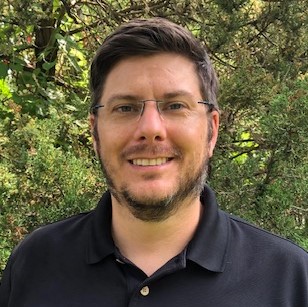
Bill Harford is a fishery scientist and the founder of Nature Analytics. Bill has 20 years of experience in fishery decision-support. Prior to founding Nature Analytics, Bill worked in government and academia to develop solutions for fisheries management in the Gulf of Mexico, the Caribbean region, coastal California, Hawaii, and the Laurentian Great Lakes. Bill has extensive experience in the application of data-limited stock assessment methods and in conducting management strategy evaluation (MSE). He is actively involved in providing scientific support for small-scale and community-led fisheries, including population dynamics numerical modeling and development of web applications for audience engagement. Based in Toronto, Canada, Bill is an avid golfer, freshwater fisher, and enjoys cooking. Coincidently, he has a well fed dog.
Kevin Reid, Ph.D.
Business Development Manager | Senior Fisheries Scientist
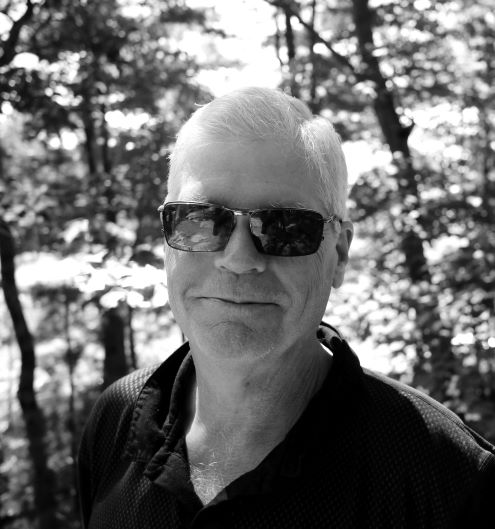
Kevin Reid is a fishery ecologist with 30 years of experience working with and on behalf of small-scale commercial fisheries. Prior to joining Nature Analytics, Kevin worked with the Ontario Commercial Fisheries Association for 17 of those years, first as a stock assessment biologist and later as research scientist to develop solutions for sustainable fisheries management in the Laurentian Great Lakes. Kevin completed a doctorate focused on the assessment and management of risk in social-ecological coupled fisheries systems at the University of Guelph in 2015. He has extensive experience in DFO Fisheries Act Authorizations, and the application of causal modelling, participatory stock assessment methods, Fisheries Improvement Projects, Marine Stewardship Council Certifications, and structured decision making processes. He also is currently involved in providing scientific support for small-scale and community-led fisheries, including population dynamics numerical modeling and simulations to evaluate alternative management actions. Based in Guelph, Canada, Kevin is an active dog walker, gardener, and enjoys documentaries. He has two well fed dogs.
Andrea Bernard, Ph.D.
Senior Geneticist
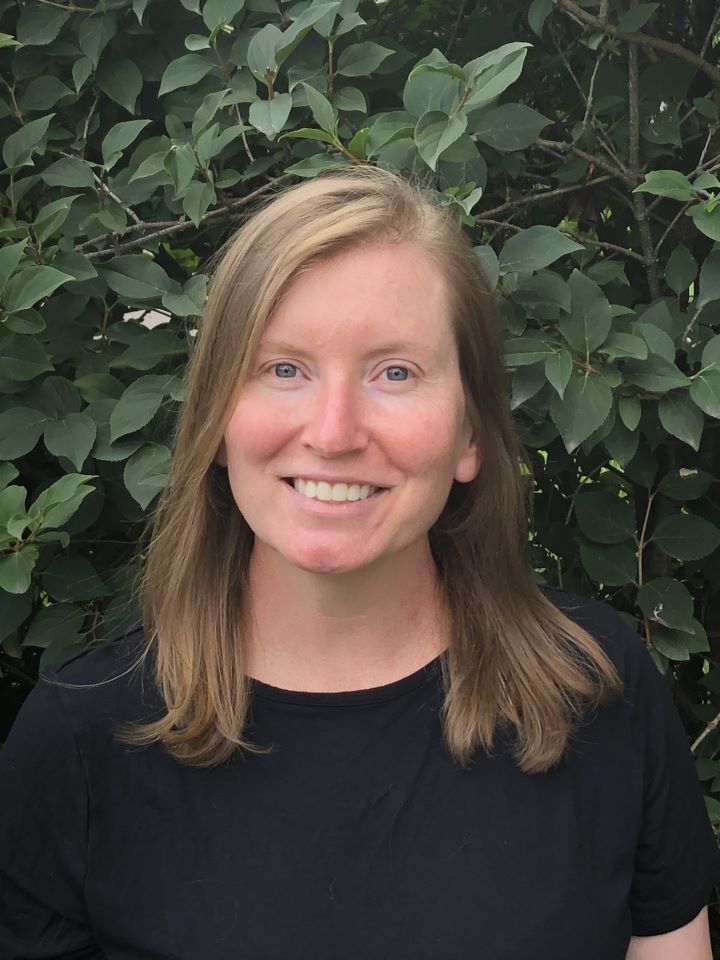
Andrea Bernard is a population and conservation geneticist with twenty years of experience studying exploited freshwater and marine taxa, including: sharks, rays, billfish, groupers, lake whitefish, deep-sea and mesopelagic fishes, and other coral reef associated organisms. She earned her M.Sc. from the University of Guelph, Guelph, Canada, in Integrative Biology, and her Ph.D. from Nova Southeastern University, Florida, USA in Marine Biology. Her chief research focus involves using genetic and genomic tools to resolve the genetic connectivity, demographics, and evolutionary history of species across both global and regional spatial scales to assist in the management of highly exploited or at-risk species. Andrea is based in Toronto, Canada, and is a long-distance runner and avid reader; she is a published fiction author, with a number of short stories published in prominent Canadian literary magazines.
Ana Adao, Ph.D.
Fisheries Scientist
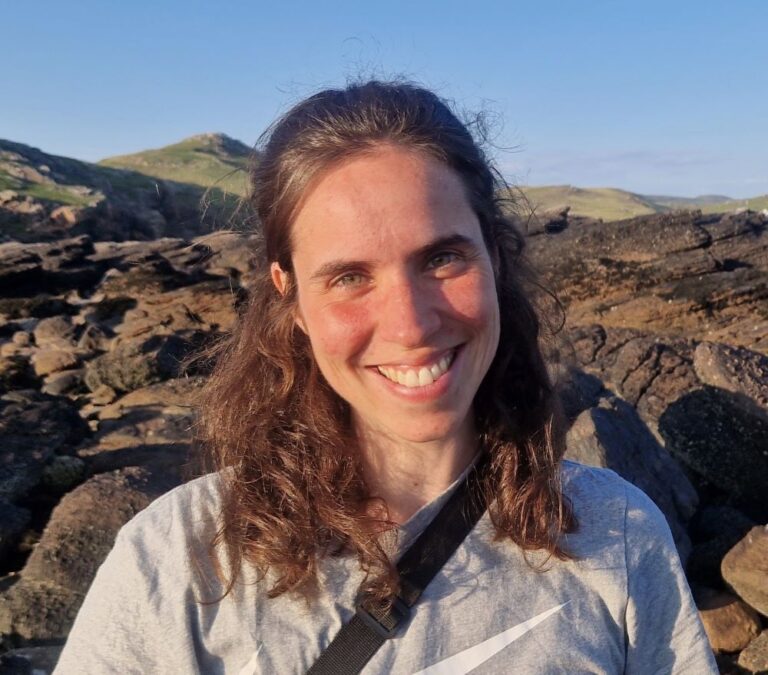
Ana Adao is a fisheries scientist whose enthusiasm stemmed from going on-board commercial fishing boats in South Portugal during her MSc project. Here she became familiar with issues such as discarding practices in bottom trawlers and the legislative framework that regulates the exploration of fish stocks. She gained practical experience working alongside the fishing industry as a fisheries observer in pole and line tuna vessels for the University of Azores. More recently, she has developed a wealth of quantitative skills on stock assessment modelling during her PhD at the University of Strathclyde (UK). Ana is passionate about the topic of fisheries research because of the multitude of social, economic and conservation aspects that must be considered for fisheries management to be successful. Ana is based in Scotland, and besides her work, she can be found outdoors hiking in the hills, rock climbing, or exploring the coastline in the Scottish countryside.
Vania Henriquez Tribinos, Ph.D.
Fisheries Scientist
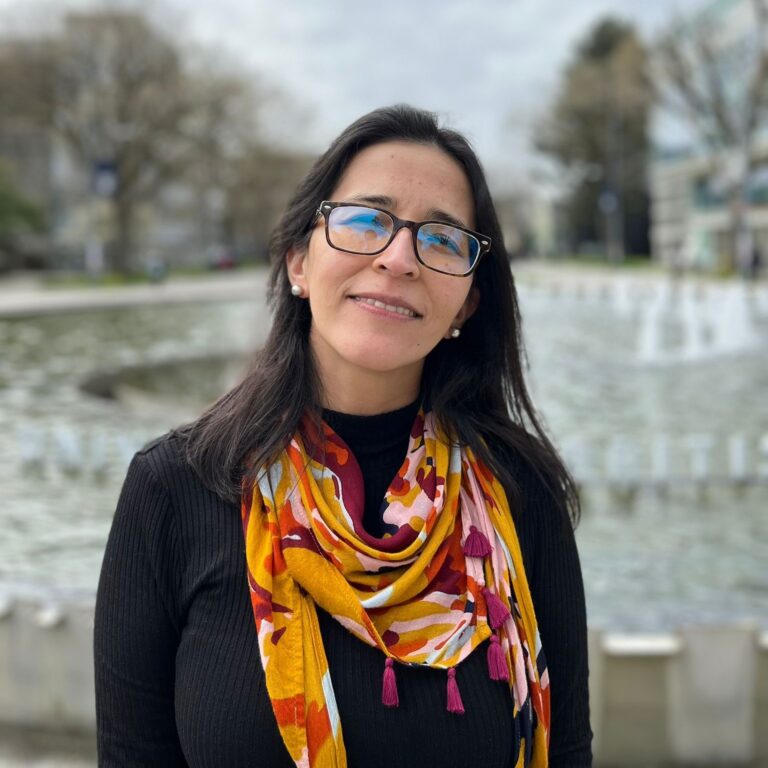
Vania Henriquez is a marine biologist who works in stock assessment and closed-loop simulations. She is passionate about applying her modeling skills to balance conservation and socio-economic objectives in fisheries. She holds an MSc in fisheries science from the University of Concepcion, Chile and has worked on stock assessment models and harvest strategies in several Chilean and Canadian fisheries, such as the Patagonian toothfish, Chilean hoki, Atlantic cod, and Haddock fisheries. She holds a Ph.D. from the University of British Columbia in Canada, where she investigated gaps in understanding the dynamics of depensatory predation and non-stationary natural mortality (M) and how these components affect the structure and parameters of time-varying Harvest Control Rules (HCRs). In addition to her quantitative modeling work, Vania is passionate about scientific communication and engaging stakeholders to promote fisheries sustainability. In her free time, she enjoys birdwatching, baking, and reading Latin American literature. Learn more about Vania’s background here.
Ambre Soszynski, M.Sc.
Fisheries Data Analyst
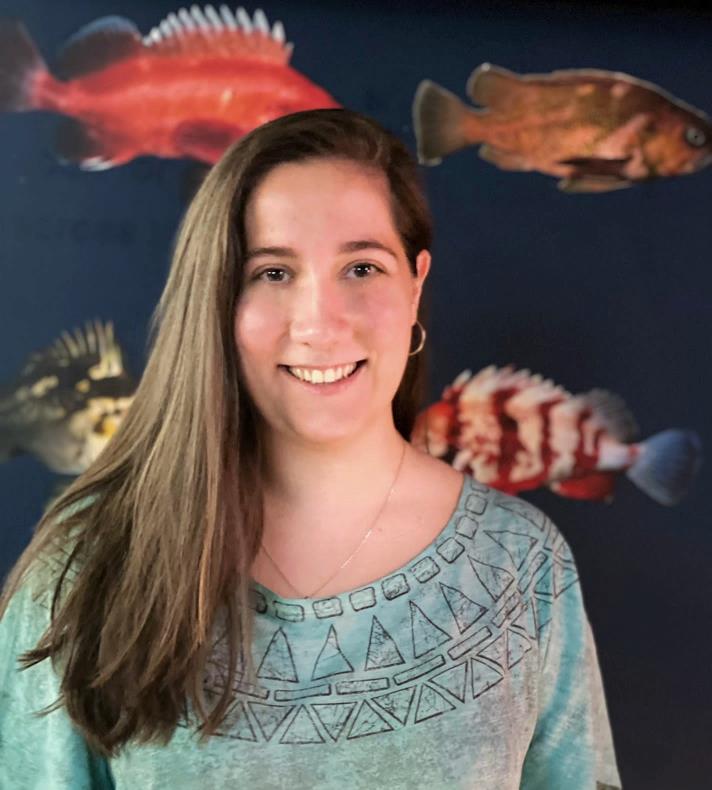
Ambre Soszynski is a food-web ecologist focusing on the trophic impacts of fishing and climate change. She has studied and worked in five different countries and holds an International MSc in Marine Biodiversity and Conservation. Throughout her travels, she has become fluent in French, English, Portuguese, can hold conversational Spanish, and has developed an ear to recognize many different European languages and accents. Her scientific expertise lies in marine ecosystem modeling, with a focus on commercial fish. Participating in international projects, she has helped develop innovative components of ecosystem models, and implement retroactive, as well as future, exploitation and climate scenarios on deep-sea and coastal systems. Working in the marine tourism industry in France, Azores and Iceland, she has also seen first hand the benefits of communication and outreach. She can currently be found in Vancouver, Canada, completing her PhD thesis with the Institute for the Oceans and Fisheries at the University of British Columbia.
